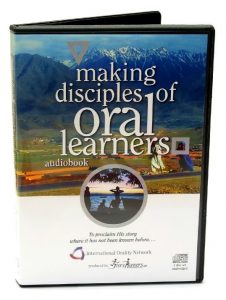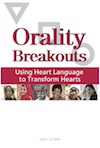Want to become a storyer? It’s simple. Memorize a story by reading it aloud or recording yourself and listening. Acting it out as you speak or drawing a simple stick figure outline are helpful memory aids as you learn (you shouldn’t need to rely on these when you tell it to others, just as you practice.)
Tell it from beginning to end but don’t worry about word for word accuracy, simply tell it in your own words. Don’t interrupt the story to teach, just tell it.
Five generic discussion questions you can use to conduct inductive Bible study orally with any story from God’s Word.
- What did you like about this story?
- What did you not like (or found shocking/surprising) about this story?
- What does God do in this story?
- What do people do in this story?
- What in this story do you want in your own life?
Remember to word your questions in concrete ways. (i.e. don’t ask, “What characteristic of God did this story teach us?” since abstract reasoning doesn’t connect with non-literates.)
Two Recommended Books
Making Disciples of Oral Learners You can read the free PDF or order a paperback from IMB. If you’d rather listen (my favorite) right-click to download mp3 files from the audio book.
- Introduction
- Forward by Paul Eshleman
- Chapter 1-A Growing Awareness of a Global Situation
- Chapter 2-God’s Word for the Whole World
- Chapter 3-Oral Communicators and Oral Cultures
- Chapter 4-Disciples to the Core
- Chapter 5-Reproducibility, Reproducibility, Reproducibility
- Chapter 6-When Literates Stop Reading
- Chapter 7-A Growing Engagement
- Closing and Credits
The follow-up to MDOL is Orality Breakouts. You can download the free PDF or order the paperback.


